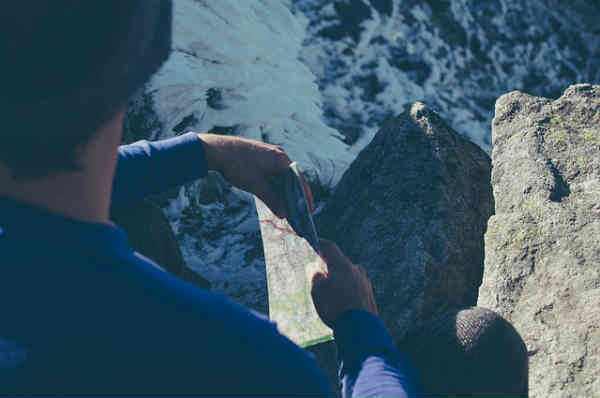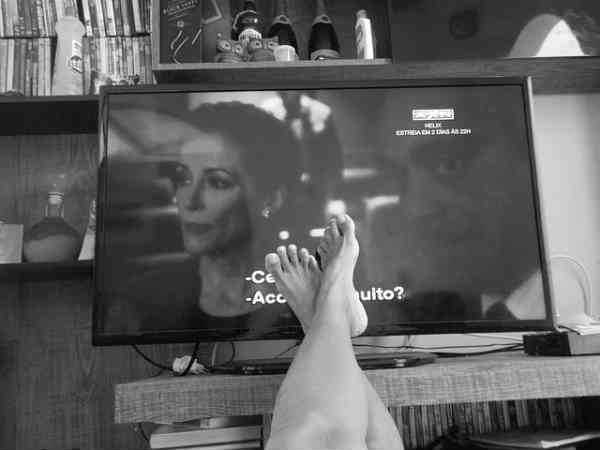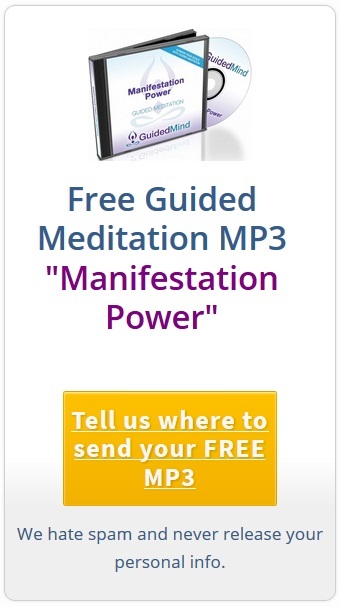Do you feel like your life is an adventure?
- Are you having a good time, waking up each day with a sense of excitement about what the day will bring to you?
- Do you feel fulfilled on a day to day basis?
- Or do you find yourself dreading getting out of bed, feeling bored with your day to day existence, or even experiencing a lack of hope for a sense of enjoyment in your future?
If your answer resonates more with the latter, then I hope this article will help to remind you of the sheer intensity, the thrill, and the fun that life has to offer.

In having conversations like this with my friends and colleagues, it usually comes out that many of us can’t remember really feeling this sense of adventure about life since we were children.
It makes enough sense.
When we were young it was so much easier to live life in the moment. We had much less time constraints and responsibilities, and so much of the world around us felt new, unexplored, and mysterious.
As we begin to live our adult lives, dealing with the various responsibilities we have, striving to survive and provide a comfortable existence for ourselves and/or our families, it can be all too easy to lose sight of this sense of wonder and excitement about life that we had as children.
However, it is SO important for us to realize something:
- The world is STILL just as mysterious as it was when we were kids.
- There is STILL so much that we haven’t explored, that we could explore, and there is newness everywhere, all around us, even in the most familiar circumstances and places that we find ourselves in.
The issue is not the world, or life. It never was. The issue is within ourselves.
Yes, society and adult life has a very strong tendency to condition us to live a monotonous, boring, time-restricted lifestyle; but for us to blame all of this on our adulthood and the way life is, is a copout.
I hope the the tips I’m about to share help you remember that you still have the option to live life like an adventure, and that it doesn’t require you to throw out your obligations and responsibilities.
In fact, you may even find that it makes it EASIER to navigate through the challenges of adult life: family, relationships, employment, finances, etc
.
Tip No. 1: Always be Learning Something New.

The all-too-common attitude of “already knowing everything” or “not having anything to do” is one of the most absurd (and shockingly common) scourges of what we mistakenly call “adulthood” in Western society.
We’d like to think that we are really so smart as to not have any necessity to continue to learn new things, continue to question what we think we’ve already learned, etc.
To cut through this mental trap, contemplate the fact that this attitude has absolutely nothing to do with intelligence, or maturity. It has everything to do with fear; specifically:
- fear of the unknown,
- fear of not being perfect,
- fear of not knowing what you are doing,
- and fear of failure.
There is always something new that you could be learning.
And if you are really feeling a void in your life, I am not talking about reading a new book. I’m talking about learning a new skill altogether, and going through an immersive experience of learning that skill.
Take classes! Meet people who are teachers and experts in this new skill! It could be something like quantum physics or Yoga, or it could be something like salsa dancing, public speaking, snowboarding, whatever.
As much as we fear the unknown, or failure, or not being good at something, the alternative to facing those fears is a feeling that there is nothing new, no adventure, and no variety in our lives. And we start to bore ourselves to death.
Which would you rather do?
Message from Guided Mind: You can learn to love and embrace change - even if you are afraid of it right now.
Tip No. 2: Learn to Recognize the Trap of Your Comfort Zone.

I talk about this a lot, because it is vitally important to understand.
We have been hard-wired, both as a human organism, and through society, to be continually bolstering our level of comfort. We hardly live for survival anymore (especially those of us who are living the “1st world lifestyle”).
We are living and striving for COMFORT. We want to have more nice things, more convenience, less stress.
As nice as comfort is, we have been programmed to live with this unrealistic expectation that we can work our way into never feeling discomfort or fear again; and we continually are doing everything we can to minimize these experiences in every way.
Well again, the exchange for this is your sense of inspiration, newness, and excitement in your life.
Comfort is only good to a certain extent. But you must remember that beyond that bubble of a comfort zone you have lies everything you want and need to grow, to continue to learn, to have adventures, to meet new and interesting people, and to succeed beyond your wildest dreams.
So yes, relax in a warm house on the couch and do that familiar thing you like to do with yourself at the end of the day.
But make sure that you are ALLOWING yourself to feel that discomfort that comes from growing and learning on a daily basis, and really watch yourself to make sure that you are not shutting out new experiences and opportunities by making decisions based upon fear of stepping out of your psychological, physical, or emotional comfort zones.
Tip No. 3: Don’t be Afraid to Make an Idiot out of Yourself.

You may be wondering how this is relevant.
Well I could have instead said:
- “Don’t be afraid to be yourself”, or
- “Don’t lose sight of your sense of humor”, or even
- “Don’t be afraid to speak your mind in the face of controversy”.
The truth is, being willing and able to laugh at yourself and deal with other people thinking you’re a goof is a crucial first step to being able to do any of those things.
When I coach people who are struggling with their sense of humor, or their sense of confidence, I often advise them to find one way to make a fool out of themselves each day.
It could be:
- Telling a lame joke (really).
- Dancing poorly.
- Or even something more embarrassing, like admitting their irrational fears to people they don’t know that well.
- Or lying down on the floor for no reason in a crowded department store or mall.
Why do this?
For many of us, being singled out or laughed at in childhood was a traumatic experience. This goes double for introverts, or highly sensitive people.
Just a few experiences of being shamed by an authority figure in public, being called out in school, or being made fun of or laughed at for something we did in front of our peers could have had a very profound effect in our mental/emotional development.
The brain takes the discomfort and trauma of these situations and immediately begins to create (mostly on the unconscious level) a ridiculous gameplan to ensure that this “never happens again”.
Message from Guided Mind: Get the confidence to get out of your comfort zone - use our Completely Confident meditation audio now.
What this ends up doing is enclosing us in shells of seriousness, taking ourselves way too seriously, being afraid of not always being held in the most seriously high esteem, etc.
It’s ok to be stupid, silly, dumb, and cheesy. And it’s ok to be laughed at, even if it is at our expense (of course I don’t mean in an overly unkind way). This is how we learn to be ourselves in the face of controversy, and how we learn to have a sense of humor that makes our lives enjoyable and fun.
Tip No. 4: Remember Your Death.

Memento Mori.
It’s amazing how the vast majority of humanity is able to live in such a denial of the fact that each and every one of us has a limited amount of time on this earth, in this body. If you find yourself cringing at this thought, or considering it to be morbid, know that this is just an indicator of the strong protective denial that the mind has created to shield you from this reality.
Meditating upon the inevitability of death can create fear or anxiety at first, and force us to come to terms with life in a new way (which is a good thing) at first, but eventually leads to a great understanding that some of the most famous and important people of our history have verified as one of the most important things they have ever learned.
We don’t have that much time!
So how does this make life better?
- Well you may think twice about holding back from telling the people in your life how you feel about them.
- You may think twice about holding yourself back from doing something because you’re too afraid.
- You might not have another chance to do it!
You may think twice about squandering another day in front of the TV, or in your own head, being angry about something that happened to you in the past.
You might take your temporary life a little less seriously, and you might decide that to take a big risk isn’t really taking that big of a risk-you’re going to die either way, right?
Tip No. 5: Take Risks.

You may notice that there’s an underlying theme in this whole article. It has to do with overcoming fear.
But following these tips gives you a way to not just resist your fears, but to see them for what they are.
How many times have you justified not taking a risk because you believe that you are protecting yourself from an imagined negative outcome?
- You might not have asked that gorgeous guy/gal out because of the fear that they would reject you.
- You might not have invested in that piece of real-estate because you were afraid that the monthly cost would limit your financial freedom.
- You might not have quit the job you hate because you might not be able to find one better.
We play this game on both a large and a small scale every day. Again, we have been hard-wired to do this. We have been biologically set up to minimize risk for the purpose of ensuring our survival.
The problem comes (again) when survival gets mixed up with just plain comfort.
We’re not going to die from being emotionally uncomfortable, or even physically uncomfortable. We’re just going to lose out on an opportunity that may or may not have turned out to be magical, and we’ll never know whether it would have been or not.
But even more than this, it is most important that you ask yourself: “Is the discomfort of the most terribly imagined outcome really any worse than the outcome that you’ll be faced with from NOT taking the risk?”
I stayed in a job that I hated for years because I wasn’t willing to see this.
One day I was finally able to understand that even getting a lower paying job, with less paid time off, less power, less freedom, was still BETTER than staying where I was at and hating my life.
I did the same with an unhealthy relationship. And I know many many other people that are doing the same thing.
I know a guy who almost never goes out in public to do anything because he’s afraid of people. Yet I would bet one million bucks that the discomfort of even the worst imagined outcome would be one thousand times better than him continuing to sit at home by himself, alone, bored, dissatisfied with life, and not forming new and fulfilling relationships with the people he’d meet if he’d rally against this fear of risk.
Tip No. 6: Rebel Against Unnecessary Routine.

I’ll tell you a story about an unhappy couple I used to be friends with.
Every time I visited them they were watching TV. They woke up, went to work, came home, cooked dinner and watched TV while they ate. Oh, and they argued and fought all the time.
This was the majority of their life. When they first met, they had a lot of fun together.
- They would go out and try new things, they got to know each other’s friends.
- They discovered different new hobbies that they could explore together.
- But as time moved on, he started to feel like she wasn’t as sweet, acknowledging, or encouraging as she used to be.
- She started to feel like he had lost passion for her and life, had lost a certain amount of boldness, and was getting kind of... boring.
Well they were both boring, and they were both hating life.
At some point in their relationship they had gotten so (again here it comes) COMFORTABLE, that they had unconsciously created this boring dispassionate routine. They came home, they ate, they watched TV.
Now don’t get me wrong, I’m not 100% anti-TV. But I am anti-anything that turns into a boring unconscious routine.
We need routine. It keeps us sane and organized.
- Healthy routines might include waking up at a certain time.
- Eating breakfast.
- Meditating.
- Showering in the morning.
- Having a habit of paying bills on the 10th and 25th each month.
- Or going to the gym every Monday, Wednesday, and Friday.
Lame boring routines might include:
- Not planning anything fun to do with your boyfriend/girlfriend/wife/husband when you spend time together,.
- Having sex the same way.
- Getting in bed at 10pm regularly before you fall asleep.
- Watching TV every time you eat.
- Smoking every time you get upset.
- Staying in every day when it’s cold outside, etc.
I could continue to drive the point home, but I think you understand.
It’s all up to us to hold ourselves in check and rebel against routines that suck the passion out of our own lives.
Conclusion.

Again, there is a common denominator to all of the tips I’ve listed here.
- It’s one of being willing to push outside of your personal comfort zone.
- It’s also one of maintaining a healthy suspicion of your own biological and socially programmed operating system.
The brain is designed to protect you and keep you alive.
However the brain has confused survival with comfort, and this is the crux of the lack of passion, apathy, depression, and pain that so many of us in the modern world struggle with.
Being a baddass does not mean never making a mistake. It doesn’t mean never being ridiculed or laughed at.
It doesn’t mean never failing.
It means exactly the opposite: doing all of these things so many times that you see through the smoke and mirrors and realize that they can’t hurt you, they can only make you stronger.
Here’s to you and your life of growth, success, and adventure, Ashton
Ashton Aiden is a certified life coach, a brainwave entrainment geek, a lover of dogs, and a passionate advocate of the human potential.
He spends most of his time working through his website, brainwavelove.com, to educate the public on the powerful benefits of brainwave entrainment technology.
When not doing this, he enjoys coaching people on the art of manifestation, providing spiritual commentary, and exploring the outdoors in his home state with his dog, Biff, and his girlfriend Dechen. He can be reached at [email protected], or on facebook.com/brainwavelove

